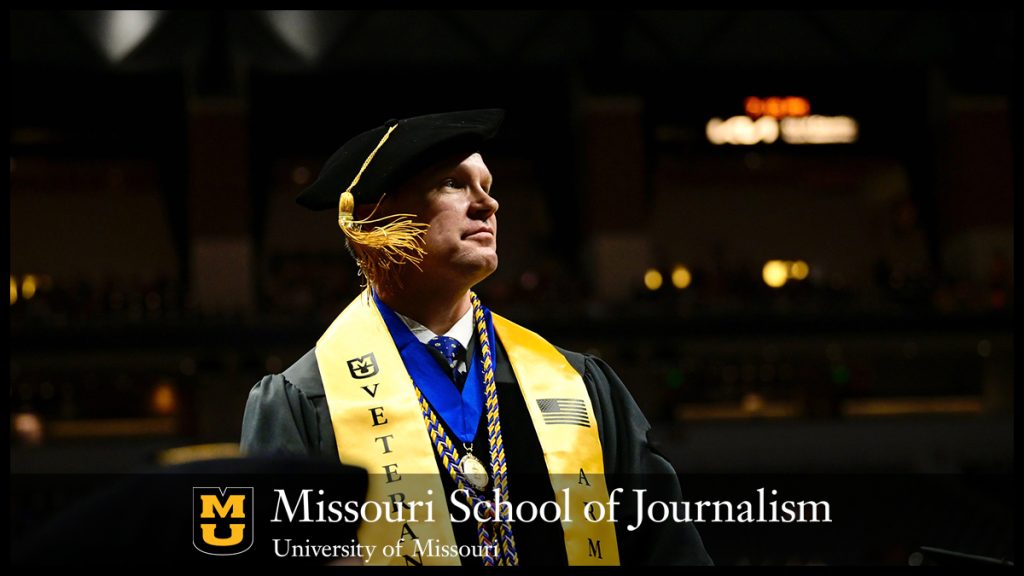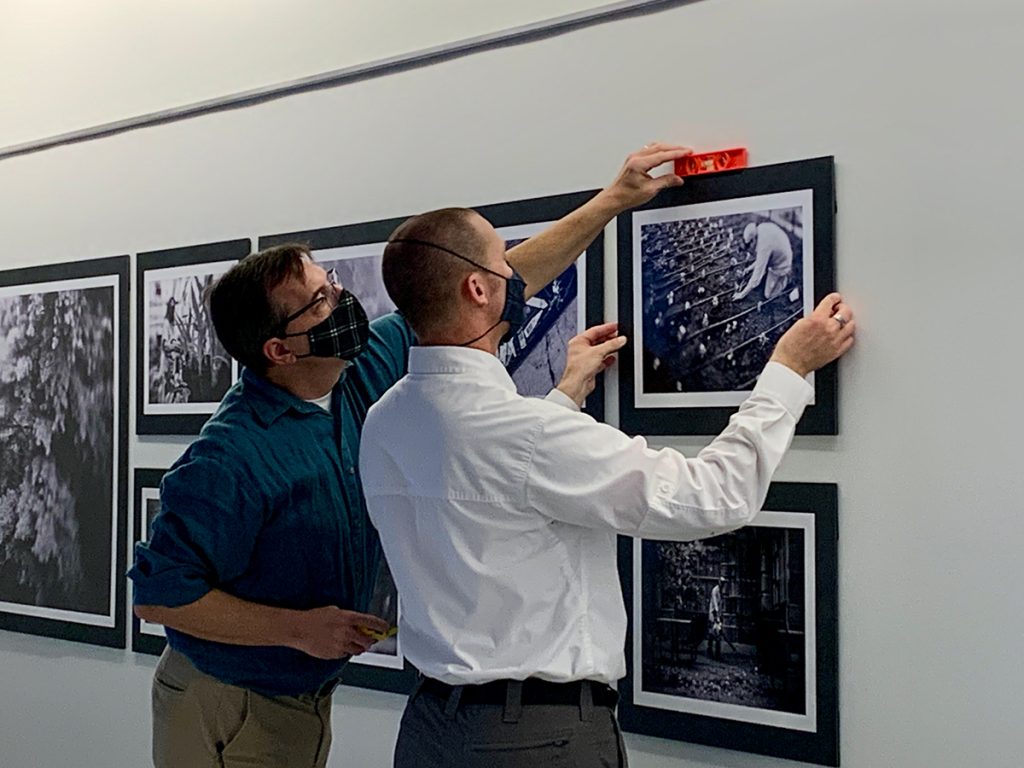Cory MacNeil, recent Missouri School of Journalism graduate, wins prestigious O.O. McIntyre Fellowship

Cory MacNeil. Photo: Nate Brown
COLUMBIA, Mo. (Sept. 5, 2024) — Cory MacNeil, PhD ’24, has earned the coveted O.O. McIntyre Postgraduate Fellowship from the Missouri School of Journalism, which grants $12,000 to a recent graduate for a reporting project.
MacNeil will develop a photo essay and column covering climate change’s local impacts in Missouri, with a focus on how even everyday sights, such as armadillos — which have migrated into the state as annual temperatures in the Midwest have risen — point to a changing climate.
“The O.O. McIntyre Fellowship is a terrific opportunity for postgraduates to produce creative journalism that stretches beyond what is possible with day-to-day reporting,” said David Kurpius, dean of the School of Journalism, noting that while fellowship recipients have explored a global range of subject matter and platforms, MacNeil’s project zeroes in on Missouri. “Cory’s project has the potential to produce the meaningful community impact that students and faculty at the School consistently strive for, and I can’t wait to see it come together.”
The School of Journalism’s top postgraduate award, the fellowship is named for O.O. McIntyre, a prolific New York City columnist who died in 1938. The fellowship was originally known as the Postgraduate Writing Fellowship and requires a written component, but participants have increasingly incorporated multimedia aspects into their projects.
“When I first heard about the O.O. Macintyre award, I saw that it was about writing and thought, ‘that’s not for me,’” MacNeil said. “But then I thought, what if we do something different with it? What if it’s ‘writing plus?’”
MacNeil hopes to run his column in the Columbia Missourian — the School’s community newspaper and one of the Missouri News Network’s five professional news outlets — accompanied by photos exploring Missouri farmers and other community members’ relationships to the climate so that readers can see visual evidence of climate change close to home.
The project also has the potential to expand into a collaboration with another Missouri News Network outlet: NPR-member radio station KBIA-FM.

“We think this will turn into a project for both news organizations as a shared content environmental journalism series,” said Brian Kratzer, associate professor and chair of the Undergraduate Affairs Committee, which assessed the applicants. “We’re excited as we see the sourcing and fieldwork commence.”
The idea partly originated from MacNeil’s experience covering a local government meeting on drought issues for the Jefferson City News Tribune, where he currently works as a photojournalist. Finding the meeting to be dry and lacking the stories of people directly affected by drought, he pondered how he might combine rigorously fact-based reporting with evocative, narrative-driven storytelling.
“Climate change is the biggest, longest, widest, deepest story in Missouri,” MacNeil wrote in his application for the fellowship. “Yet, if we only tell it through the newspaper as reports on government meetings, themselves filled with graphs, charts and expressionless faces, journalism will miss a significant and meaningful opportunity to serve the community.”
In that approach, Kratzer sees the essential nature of a photographer and storyteller.
“In the spirit of [MacNeil’s] photojournalism background, he plans to tell intimate stories,” Kratzer said. “Specifically, how climate is affecting lives on a personal level as opposed to the scientific manners we often see. His mission to report statewide on Missouri residents from urban and rural areas fits well with the spirit of the O.O. McIntyre award.”
MacNeil is certainly well versed in photojournalism: his doctoral thesis examined how the New York Times presented narratives about the U.S. war in Afghanistan and the eventual withdrawal of troops, analyzing articles and more than 1,400 published photographs to identify consistent messages and voices.
While working on that thesis, he spent the summer of 2021 photographing Mizzou groundskeepers as they maintained the campus botanical garden, ultimately whittling more than 8,000 photographs down to a series of 12 that ran in the Missourian and were put on display at the School of Journalism’s Reynolds Journalism Institute. The images feature distinctive use of tilt-shift photography to render subjects in sharp focus against a blurred background.
Nor is he a slouch when it comes to the written word. During an internship at The Platte County Daily Citizen, a daily newspaper serving Platte County in northwest Missouri, his writing earned him a business reporting award from the Missouri Press Association.
Now, those talents will come together to tell the kind of story that can’t be told any other way: the story of Missouri’s changing climate, through the lens of personal encounters with the natural world and through the lens of a camera.
Updated: September 5, 2024